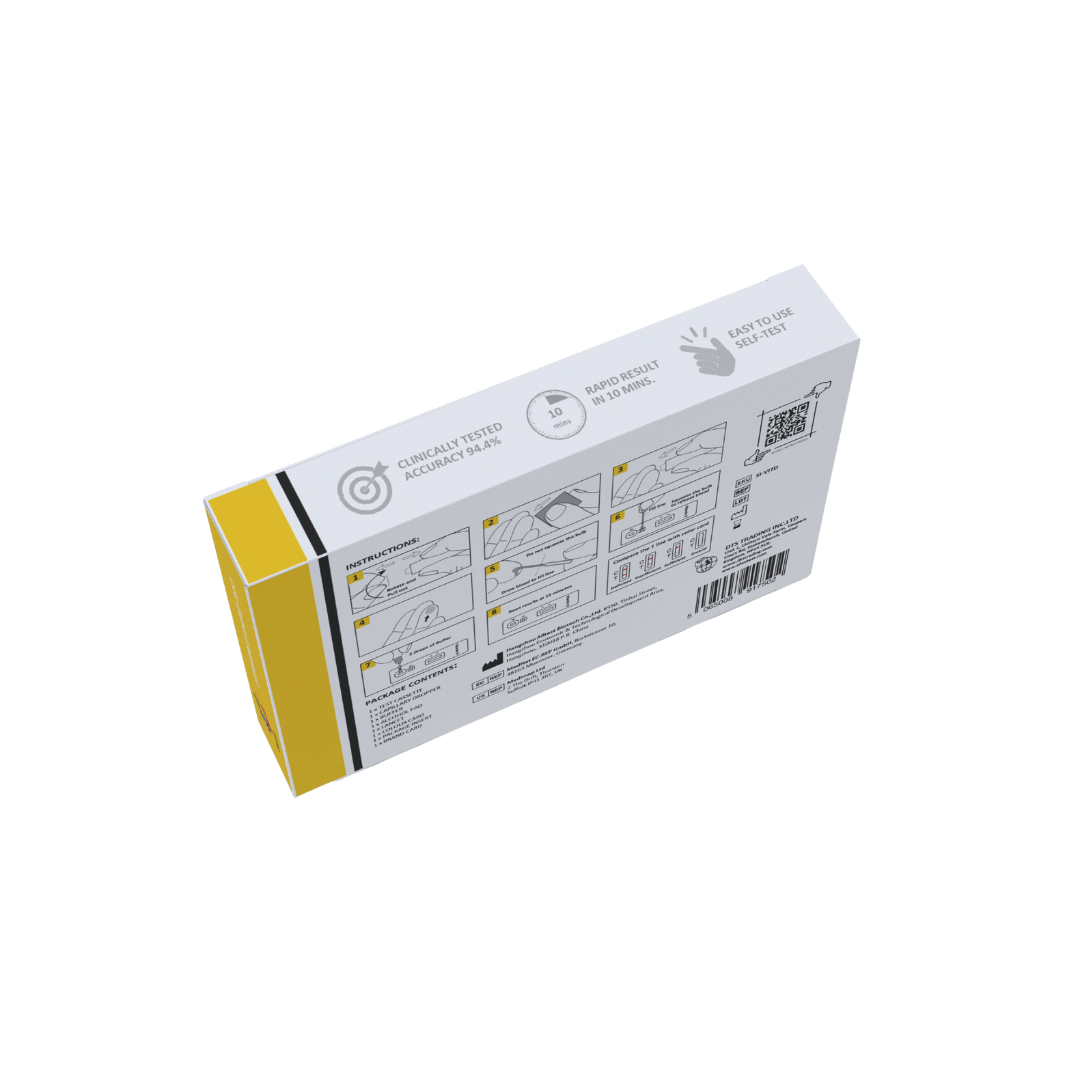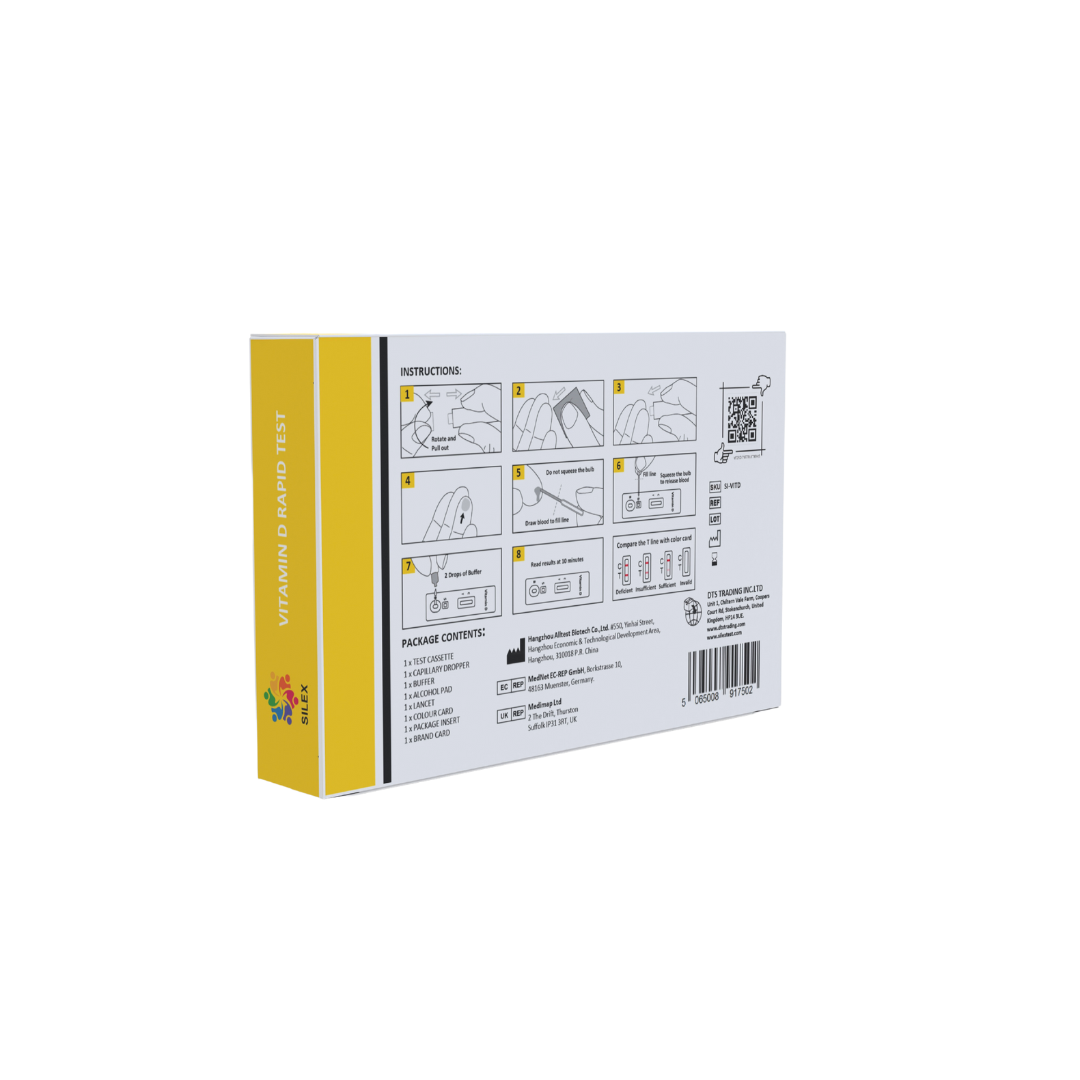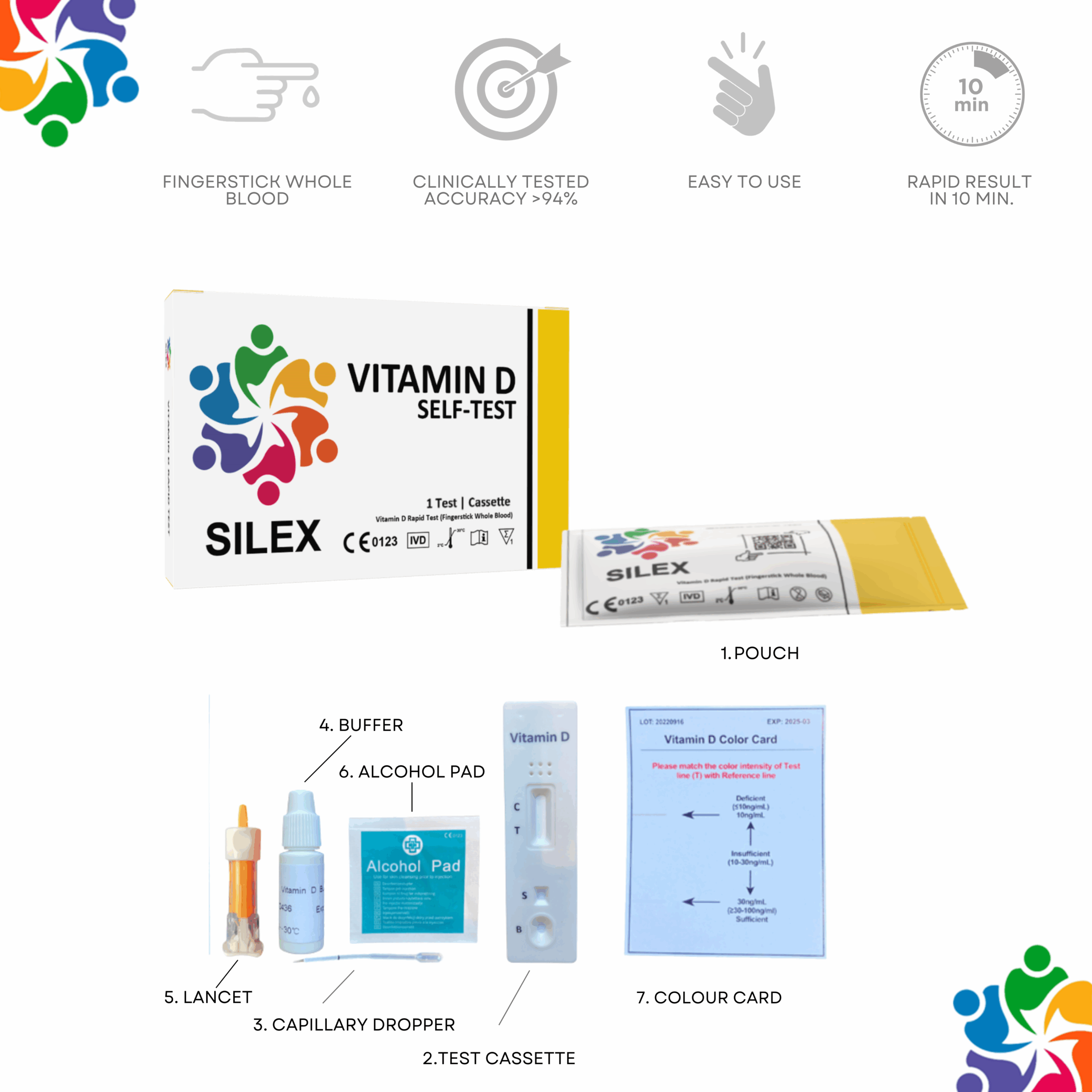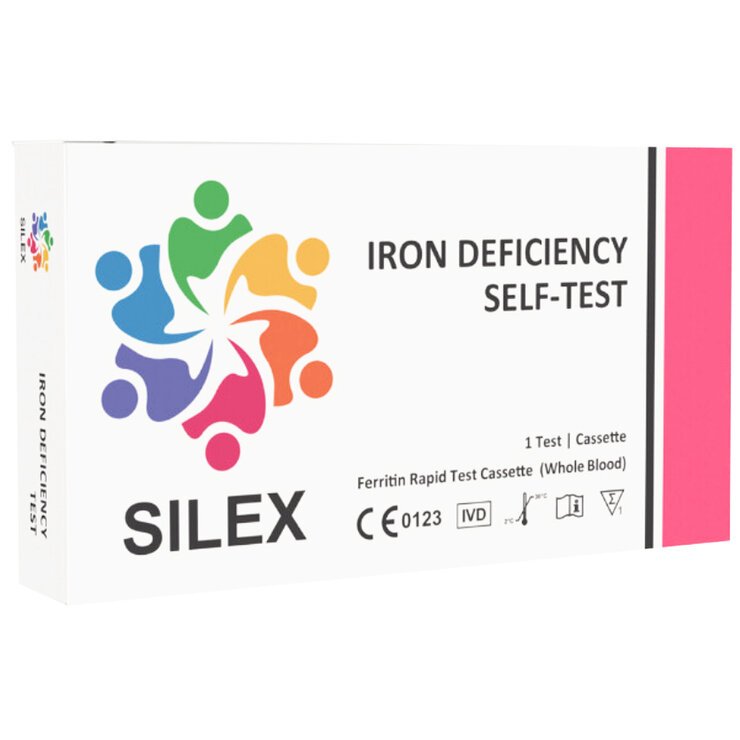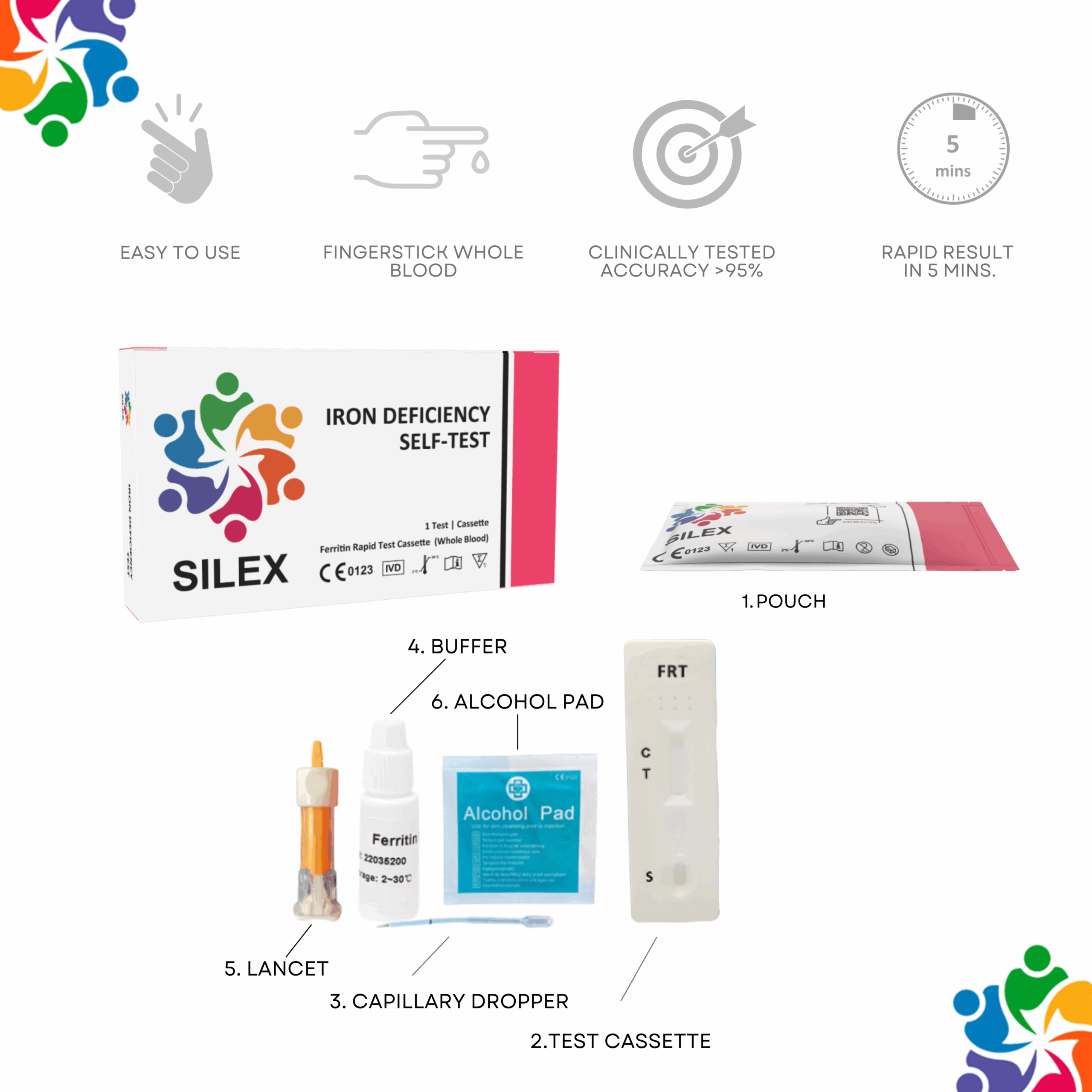Iron & Vitamin D Home Self-Test Bundle
Detect low iron stores and non-optimal vitamin D levels from the comfort of home. Includes two easy-to-use finger-prick rapid self-tests: one for iron (ferritin) and one for vitamin D.
€13.49 ex VAT
Shipping 1-2 Business Days
Trading for over 25 Years
Take control of your wellness with the Iron & Vitamin D Home Self-Test Bundle from Hibernia Medical. This convenient duo combines two clinically-validated self-tests — one for iron deficiency (ferritin) and one for vitamin D — giving you a clear snapshot of crucial nutrient levels in just minutes, without leaving home.
What’s Included
-
1 × Silex Iron Deficiency Self-Test Kit: Checks your blood ferritin to screen for iron deficiency anaemia using a simple finger-prick sample.
-
1 × Silex Vitamin D Self-Test Kit: Measures your vitamin D level via finger-prick whole blood; vitamin D supports bone, muscle & immune health.
Key Benefits
-
Easy and convenient: Perform both tests at home in minutes. The iron test returns a result in around 5 minutes.
-
Clinically tested: High accuracy (iron test >95% accuracy) and well-trusted brand.
-
Dual-nutrient insight: Two major risk areas (iron and vitamin D) covered in one bundle.
-
Ideal for those feeling fatigued, with low mood, muscle weakness, brittle nails or hair, or those looking to optimise overall wellness.
Iron Deficiency Self Test Kit:
Screen for Iron Deficiency Anaemia (IDA) early with our convenient at-home Iron Deficiency Test. Just a quick finger-prick sample to check your ferritin and iron levels accurately.
Key Benefits:
- Easy to use
- Fingerstick whole blood
- Clinically tested accuracy > 95%
- Rapid result in 5 minutes
Contains:
- 1 x Test Cassette
- 1 x Capillary Dropper
- 1 x Buffer
- 1 x Alcohol Pad
- 1 x Lancet
- 1 x Package Insert
- 1 x Brand Card
Symptoms
Iron is used to make haemoglobin which is found in red blood cells. Haemoglobin is important for carrying oxygen around the body. If you don’t have enough haemoglobin then your body is not going to get the oxygen it requires to function at its best. This low level of haemoglobin/red blood cells is called anaemia.
Iron is also important for the healthy growth of hair, skin and nails.
If you are iron deficient, then you can experience a wide variety of symptoms. These include:
- Tiredness
- Becoming fatigued quickly during exercise.
- Looking pale
- Memory problems
- Brittle hair and nails
- Poor concentration
- Getting out of breath quicker than normal
- Slow wound healing


